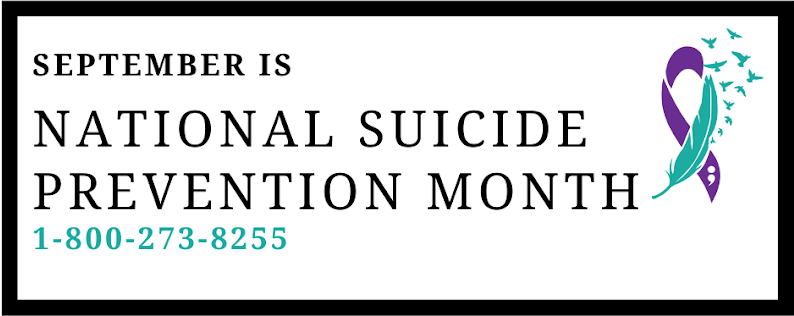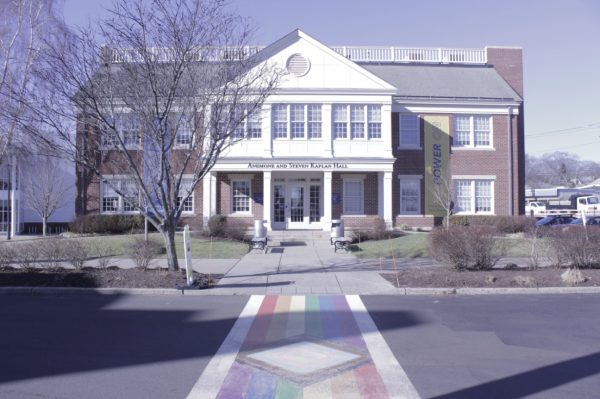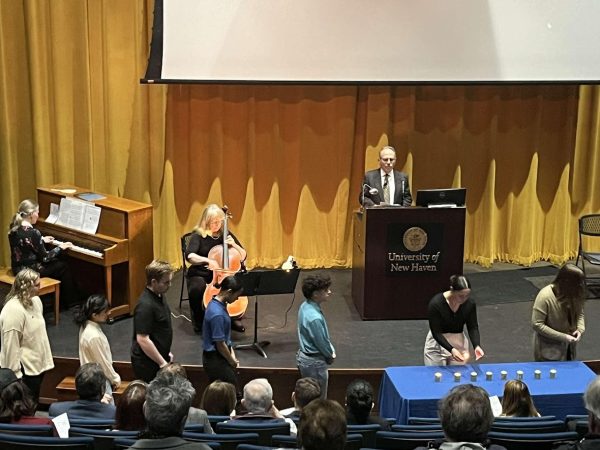Students talk importance of National Suicide Awareness Month
September is National Suicide Prevention Month and brings together mental health activists, prevention groups, survivors, allies, community members and more to raise suicide prevention awareness.
This is a time to acknowledge those who have been affected by suicide, to promote awareness on the topic and to concentrate efforts to get help to people who need it the most. The goal of suicide prevention is to decrease risk variables while increasing those that encourage resilience.
The National Suicide Prevention Lifeline actively promotes the hashtag #BeThe1To to help spread the word of steps and techniques to prevent suicide. They emphasize the importance of taking action to “promote healing, help and give hope.” This project is in collaboration with many innovative organizations nationwide including The Trevor Project and the Connecticut Suicide Advisory Board.
The National Alliance on Mental Illness (NAMI) highlighted the trend “Together for Mental Health,” during the month of September to encourage advocates to speak up for better mental health care.
During this month it is essential for students to learn and be engaged in effective suicide prevention techniques.
The Centers for Disease Control and Prevention (CDC) funds the Comprehensive Suicide Prevention Program. With hopes to reduce suicide rates by 20 percent by the year 2025, the CDC plans to develop a national program that will aid in the reversal of rising suicide rates across the United States. Connecticut Department of Public Health is one of their 11 recipients.
Bethany Konel, a clinical psychology junior, said it is important that the clubs on campus who revolve around mental health should promote themselves more.
“I think that the CAPs should be promoting help and awareness more around campus,” said Konel. “They should reach out to students, seeing where they are at, and offer any help and resources that may be needed.”
Noelle Miller, dental hygiene sophomore, said that she is unaware of any events being hosted by the University of New Haven to bring attention to this situation. As of Sept. 7, ChargerConnection does not have any events being hosting during this month having to relate to suicide prevention.
To raise awareness, Miller suggests that the University of New Haven publicize the topic like if it was a club or event on campus, such as sending out emails, informing students and reminding them of what resources are available to them.
Miller said that giving students things like journals and allowing them a space to talk reminds them that they are not alone during hard times. Mental health and one’s well-being are far too vital to be overlooked.
Sports management senior, Joseph Chermak also said that the school should promote and market events better by bringing in special guest speakers. “It is definitely important for people with problems with mental health because it is a month for them to be heard and to allow their voice to be heard.”
Konel said, “In general, suicide prevention is a huge topic that all ages should be aware of. I think that now more so than ever, suicide rates are highest they have ever been due to the pandemic. Help and prevention should be a prominent topic in every community so people know they are not alone in these struggling times.”
Paige Bartels, Director of Counseling & Psychological Services said that although events have not been planned yet, she will share upcoming information with the Charger Bulletin.
The National Suicide Prevention Lifeline phone number is 1-800-273-8255. Crisis Service New Haven phone number is 211. The university offers counseling and psychological services and are available for crisis alert 24/7 at 203-932-7333. In addition, support groups are available for students along with in person and remote appointments.

Elisa D’Egidio is a senior studying criminal justice with a concentration in crime analysis and a minor in English. Elisa has been an active staff writer...










